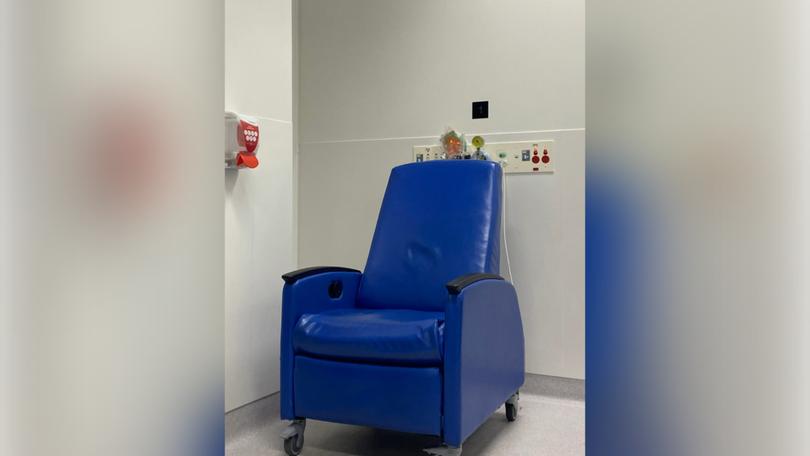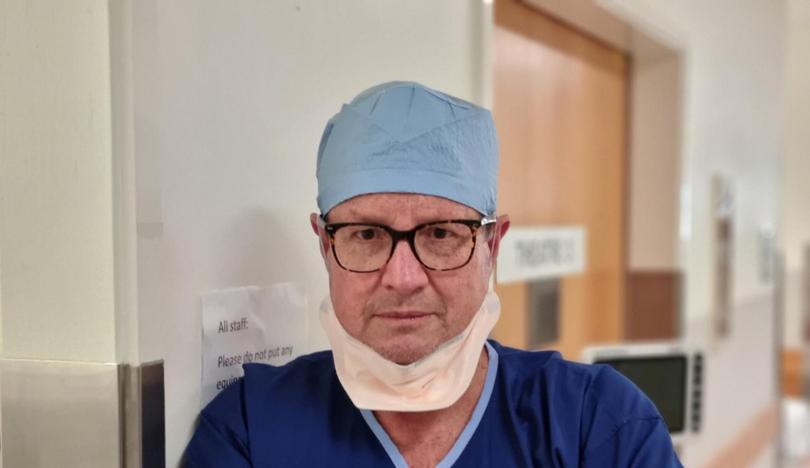Sick patients spend the night in chairs in Sydney’s Royal Prince Alfred Hospital
Sick patients are being forced to sleep overnight in recliner chairs in a major Sydney hospital because there are not enough beds.

Sick patients are being forced to sleep overnight in recliner chairs in a major Sydney hospital because there are not enough beds.
A patient who presented at the Emergency Department at Royal Prince Alfred Hospital around midday on Thursday described how he spent the night in a chair in a room alongside six other people.
It comes amid reports across the country of a massive increase in ambulance ramping — where ambulances are stuck for hours outside hospitals because they can’t offload their patients — and patients sleeping in corridors.
Sign up to The Nightly's newsletters.
Get the first look at the digital newspaper, curated daily stories and breaking headlines delivered to your inbox.
By continuing you agree to our Terms and Privacy Policy.The patient — who required surgery on his arm and was also recovering from two broken ribs — said his night was “far from restful” as he endured his own pain as well as moaning and coughing from other patients.
“The chair I was in was faulty and the lever didn’t work, so I couldn’t operate the lever myself,” he said.
“The toilet was quite a walk, in a different part of the emergency department.”
“It was draughty. I wasn’t offered a blanket, I had to ask for one. No one had pillows.”
The Perth man in his 60s had been visiting relatives in a NSW regional city when a health problem flared and he was told he would need urgent surgery at RPA.
While he was promised a bed as soon as one was free, he spent several hours in a waiting room chair until he was offered the recliner late Thursday. He remained there for more than 14 hours.
The patient stressed he had nothing but praise for the overloaded staff who did their best to cope under difficult conditions.
A Sydney Local Health District spokesperson said recliner chairs “designed for patient comfort” were used regularly in emergency departments across NSW “where clinically appropriate” and patients were monitored regularly.
Royal Prince Alfred Hospital had one of the busiest emergency departments in NSW, with more than 21,000 presentations in the first quarter of this year.
“All patients are seen and triaged on arrival at the ED and, as always, the most seriously unwell patients are treated first,” the spokesperson said.
“During busy times, people with less urgent conditions can experience longer wait times when there are large numbers of seriously unwell patients being prioritised for emergency care.
“The Emergency Department will be substantially expanded as part of the $940 million RPA Hospital redevelopment, which is already underway.”
A spokesperson for NSW Health said influenza, COVID-19 and respiratory syncytial virus were having a “significant impact” on health services, but the system was “well-placed to respond to seasonal increases in demand”.

Australian Medical Association president Steve Robson said patients sick enough to be admitted to hospital should not be left in a chair.
“There’s a big difference between being safe, and actually being appropriately and comfortably looked after,” he said.
“If local members of parliament went and spent the night in that circumstance, that would be pretty unpleasant. Most people are better looked after on a CEO sleep-out than they are in a chair in an emergency department.”
Professor Robson said he would be concerned if a situation in which patients were being treated in chairs and corridors became normalised in Australia.
“I think corridor care is particularly pernicious,” he said. “It’s very easy to feel like the problem’s been solved because someone’s sitting out of sight, out of mind.
“I think when people get used to things like this, it tells a very sad story about our health system.
“The standard you walk by is the standard you accept, and if we’re walking by patients in corridors, then we really need to have a very careful look at the health system.”
“It’s not acceptable in Australia in 2024 and I think we really need to resource the system. We need to look at all the bottlenecks where patients are held up and we should make it a high priority that the most vulnerable and sick people in our society get decent care.”
Professor Robson said hospitals across Australia were grappling with the pressures of rising demand, staffing issues and too many beds being occupied by people who should be in aged care or NDIS accommodation.
“Around the country, we’re seeing some of the worst hospital performance on record,” he said.
Figures from this year’s AMA public hospital report card show emergency department waiting times have worsened, with the national average of patients seen on time at its lowest in 10 years.
“Across the country, hospital bed block is creating a situation where our EDs cannot move patients through, leading to wait times continuing to blow out,” it said.
The report found the proportion of older Australians was increasing, but the number of public hospital beds being added to the system was not keeping pace with population growth.
